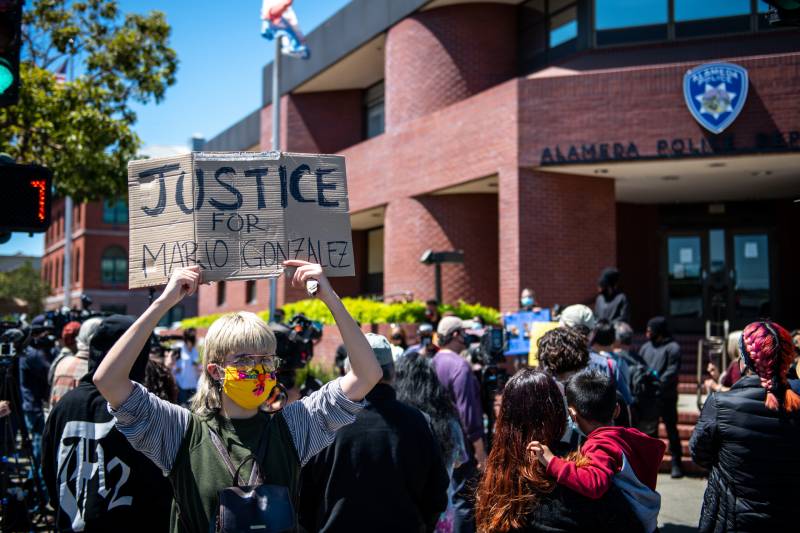In a rare weekend session, the Alameda City Council approved several police reform measures aimed at diverting some mental health crisis and minor quality-of-life calls away from law enforcement, increasing police accountability and revising the department’s use-of-force policies.
The move comes nearly three weeks after the death of Mario Gonzalez, an unarmed 26-year-old man who stopped breathing as he was pinned face down to the ground by Alameda police officers in a city park on April 19.
The city released police body camera footage of the incident the following week, sparking fierce outcry and demands for major policing reforms.
The council, in separate votes, approved all three proposals on the agenda, including one that directs city staff to immediately begin considering changes to the city’s 911 dispatch protocol by exploring a pilot program that would reroute certain mental health and other non-violent calls to the Fire Department or to community health teams.
Additionally, the council directed the city to begin reviewing the Police Department’s body camera footage and its use-of-force policies, and to develop a more comprehensive list of mental health resources available. The council also approved the creation of a new civilian police auditor role, and moved to begin the process of drafting a local ballot initiative to establish a civilian police oversight board.

